Why was so many 60s comedians’ schtick about having mental health problems…?
Alexei Sayle once said, ‘Everyone goes on about how sad it is the Music Hall died. I’ll tell you why it died. Because it was shite!’. Slightly harsh maybe as TV and cinema more than anything replaced these emporiums of working-class pleasure. In the same way ‘The Talkies’ buried the careers of many top silent stars due to their silly voices or inability to act and talk at the same time. TV mainly saw the demise of many major comedy stars of the Music Hall era.
During the heyday of the Music Halls comedians needed only one act. There were hundreds of Music Halls around the UK and a comedian could get away with the same act for years as they wouldn’t perform in the same place more than once in a short period. When telly and cinema came along they were buggered. The more resourceful acts, however, started to employ scriptwriters and so could change their gags and routines more regularly. What they couldn’t change though was their ‘schtick’. The character they inhabited that told the gags and for a while they got away with it but as telly became more widespread this, for many, became a problem and they faded away. The survivors diversified, like Max Wall who became an acclaimed actor and even appeared in Beckett’s ‘Waiting For Godot.’ Some, however, persevered with their act and did manage to have a career although one wonders why when you remember those acts from many years ago.
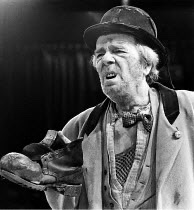
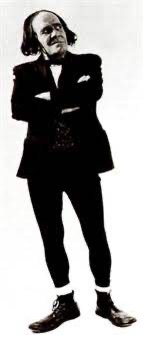
What people maybe didn’t realise at the time was why so many of these comedians’ characters were based on people with mental disabilities? Try to describe their acts to youngsters and they would just look puzzled. And rightly so. But these were performers who appeared on telly and sometimes in films on a regular basis. They were the ones who somehow managed to escape the Music Hall net.
Take Mike and Bernie Winters, for example. It’s a well known story but is always worth repeating. When they played the Glasgow Empire early in their career, Mike Winters went on stage first to warm up the audience before introducing his brother Bernie. Mike’s intro didn’t go down well with the rather demanding Glaswegian audience and when Bernie walked on some wag shouted, ‘Jesus Christ, there’s two of them!‘
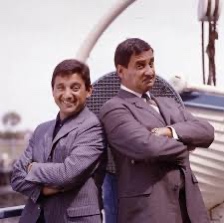
Mike was the straight man whose main, in fact only, skill was playing the clarinet. When this instrument was inevitably produced it was time to go and put the kettle on. Bernie was the funny man who played a guy who was ‘not the full shilling.’ Bernie would wear a battered old coat, a bowler hat pulled down over his head and had a number of catchphrases (well, three) which took the place of real gags. His most famous one was ‘Eeeeeeeehhhhhh!’ Another was ‘I’ll smash your face in!’ and the other one was when he pulled Mike’s (face)cheeks apart and said “Eeeehhh, choochie face!’
And that, Ladies and Gentlemen, was about it. Their career always suffered because Morecambe and Wise were so much better, and clearly had superior scriptwriters. And Eric and Ernie also didn’t lean on the mentally ill as a comedy crutch.
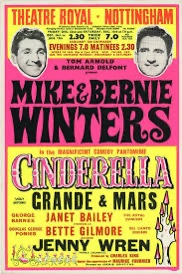
That excellent film channel, Talking Pictures recently featured a 1960 film called Jazz Boat. It was one of many films made by British production companies in the early to mid-60s which were jumping on the bandwagon of youth rock and roll culture. Many of these films gave an opening to young directors who went on to become established in the 70s such as John Boorman (whose contribution to this genre,’ Catch Us If You Can‘ featuring the Dave Clark Five is truly innovative and ground breaking), Tony Lester, Michael Winner and, with Jazz Boat, Ken Hughes and writer John Antrobus. These films were pretty hit and miss, many were some middle-aged man’s idea of what youth culture was, but some tended to suggest there was a talent at work. Jazz Boat starred a young Tony Newley, a very fashionable and radical figure in the early 60s, and an even younger Bernie Winters. Maybe Bernie should have stuck to acting as he’s not at all bad in a semi-serious role. Another reason he should maybe have stuck to acting was in the early 70s when a huge fall-out with his brother Mike resulted in Bernie going solo. Clearly he couldn’t sustain a comedy act on his own so enter Schnorbitz, his pet St Bernard. Schnorbitz could pretty much do everything Mike Winters did, bar play the clarinet. Bernie’s comedy schtick of being ‘not the brightest bulb in the box’ was over, as was that of some other comedians (see below), but it signalled the end for that type of variety as alternative comedy was just around the corner. And it was Schnorbitz who became the star…
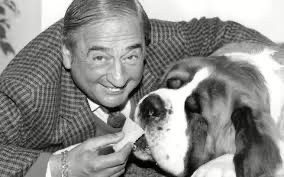
Many of the well-known TV and radio comedians of the 60s honed their trades after the war at The Windmill Theatre in London (‘They’re naked and they move!’). The comedians’ job was to fill in the gaps between the performances of the naked girls, the only reason a certain type of person went to The Windmill at this time. Barry Cryer, one of the comedians, described this time in his autobiography. As each comedian went through his act, the audience, all men obviously, would be standing drinking at the bar at the back of the theatre, reading the paper, blethering and totally ignoring the comedy act. When the comedian completed his routine he would introduce the girls and suddenly there would be a dash to get the best position on the front row. Guys would be leaping over the seats to get to the front quickly. Jimmy Edwards, another of the Windmill comedians, called it ‘The Grand National.’
Jack Douglas was one of the Windmill graduates and he was rarely off the telly in the 60s and early 70s. He appeared on endless variety shows such as Des O’Connor, Lulu and Cilla as well as many films, particularly the Carry-Ons. And he always played the same character, Alf Ippitittimus. Overalls, flat cap, little round glasses. His schtick was that he had an enormously violent twitch and he was pretty thick. He’d be talking to Des, for example, and suddenly his whole body would contort violently, almost poleaxing Des and his cap would go flying across the set. Des would pick it up and hand it back to him and Alf would say, ‘ Oh, I’ve got one like that.’ And that was pretty much his act. And I’m giggling to myself as I write this.
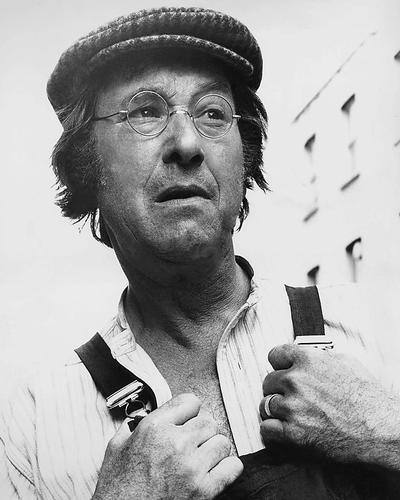
To be fair to Jack, there were other elements to his act, but they all involved him twitching violently at the most inopportune moments. Sometimes he would perform ‘The Green Eye of the Little God,’a ‘dramatic monologue’ very popular in the Music Halls in the early 1900s, and of course, Jack would perform as Alf and do all the actions. When you’d seen it once…
Jack’s act can be seen on the 1970 episode of The Golden Shot below at 18:55. A fascinating watch in lots of ways and not just for Alf Ippititimus! (See Like A Bolt From The Blue..The Golden Shot)
Douglas appeared in seven Carry-On films, always as Alf, and famously was paid a dozen bottles of Dom Perignon champagne for his part in one of them. A strangely inappropriate stipend for such a working-class act. I always thought Jack Douglas was funny but describing his act which was fundamentally someone with a serious medical and psychological condition to a young person is a non-starter. You had to be there.
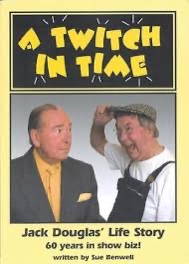
If you think describing Jack Douglas‘s act was difficult, step forward Freddie ‘Parrot-Face’ Davies! Freddie’s big break was when he appeared on Opportunity Knocks in 1964. From then on until, pretty much the early 70s, Freddie worked regularly, always with the same act. Always playing a character my nana would describe sympathetically as ‘having a want aboot him.’
But I’ll start this particular story in, of all places, one of God’s biggest waiting rooms, a place sometimes known as Eastbourne. I was attending a conference there in 1986 and was sitting in a large Chinese restaurant with some colleagues. A small, dapper man in a tuxedo walked in and strolled through the restaurant looking around in a superior way and nodding to certain individuals who clearly recognised him. One of my colleagues suddenly exclaimed, ‘It’s Freddie Parrot Face Davies! I’m thick, thick, thick, right up to here!’ And lo it was he. And then I dived under the table in embarrassment as one does when in the presence of a comedy hero. On our journey back to our hotel we stumbled across the local theatre and above the entrance in very large lettering were the words, ‘Frederick Davies Presents….’ Everything fell into place. He was now an impresario and one of Eastbourne’s foremost worthies. So this is where he’d been after the gods of showbiz no longer smiled upon him!
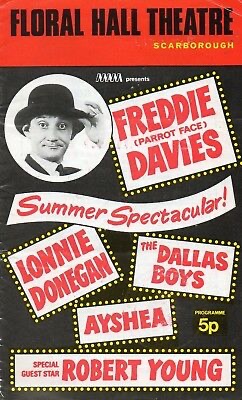
It’s fair to say Freddie’s act was niche, to say the least. His distinctive look included a Homburg hat pulled down over his head making his ears stick out. His routines invariably involved stories about budgies, or ‘boodgies,’ which he would deliver with a pronounced lisp or ‘lithp’. His catchphrase, ‘ I’m thick, thick, thick, right up to here!’ can still be heard occasionally, coming from people of a certain vintage, like me. His routines also involved him removing his Homburg and taking on the role of a pet shop owner. He would replace his hat and he’d be Freddie Parrot Face Davies again, complaining about these boodgies the pet shop owner had sold him previously. I wonder if Python got the idea for the parrot sketch from him? He would also regularly take on the persona of a character called Samuel Tweet. Suffice to say, boodgies were not far away and Samuel got annoyed! His catchphrase (there was always a catchphrase) was ‘I’m thick, thick, thick, right up to here‘, which uthed his lithp thuperbly. It’s also unconfirmed that Hannah Barbera’s Sidney The Elephant was based on Freddie’s act.
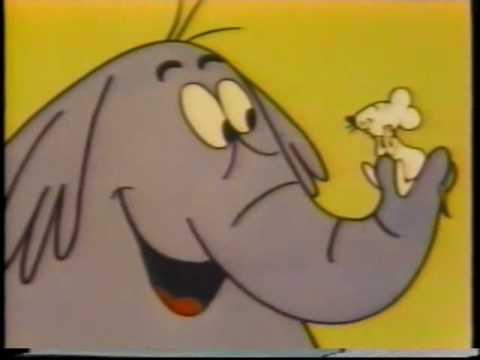
Freddie could also be musical and released a number of singles. Obviously in the persona of Freddie Parrot Face. His most successful single, although it didn’t chart, was Sentimental Songs. The ‘B’ side of this waxing was entitled ‘Semolina.’ which I clearly remember him performing in a duet with Des O’ Connor in his heyday. Imagine these tunes sung with a pronounced lisp and you get the general idea. I once tried to perform ‘Sentimental Songs‘ to my lovely wife, who had, oddly, never heard of Parrot Face, on a ferry in Croatia whilst eating an apple. The results were not pretty.
In the years when Freddie was flying high with his boodgies, 1968-71, he, bizarrely, had a comic strip of his character in the kids’ cartoon comic ‘Buster.’ Inevitably boodgies featured heavily. How they managed to concoct stories involving boodgies every week for three years is genius on the part of the cartoonist.
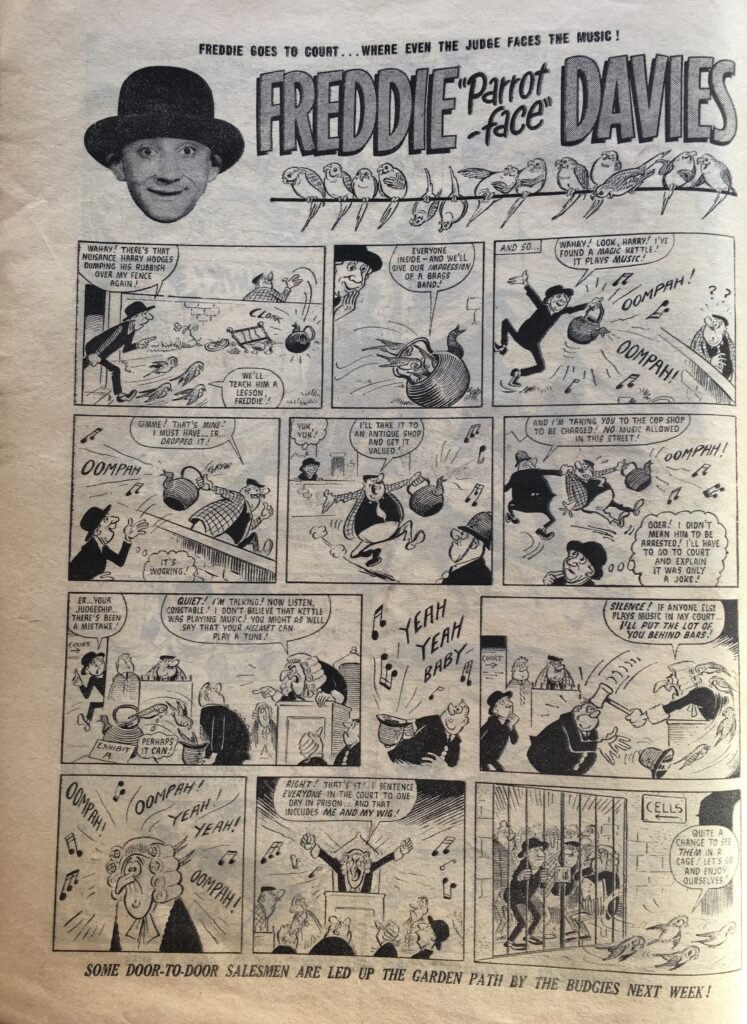
After his act went cold and the boodgies had flown, Freddie moved into acting and appeared in a range of TV programmes, not least Last of the Summer Wine (inevitable) and Casualty (even more inevitable). His crowning achievement though was in Peter Chelsom’s wonderfully quirky film, Funny Bones. In fact, Freddie’s current one man show is called ‘Funny Bones’, which would be well worth seeing.
In 1972 Freddie had a huge hit in Brazil and The Philippines with a song called ‘So Lucky,’ which might have been a fitting epitaph for his career, although I beg to differ. But Freddie, or should I say Frederick, is very much still with us.
Trying to find much footage of his act was almost impossible other than a brief minute on Youtube. But those wonderful people at Talking Pictures TV featured an episode of that wonderfully surreal monument to the era of ‘variety,’ Sunday Night At The London Palladium, and who just happened to be on the bill that particular night in 1968? Why, none other than Mr Freddie ‘Parrot Face’ Davies doing his whole act! I thought I’d died and gone to 60s comedy heaven. Again.
Who would have thought a homburg hat, a budgie and a lisp could have created an act that everyone over the age of 55 remembers so fondly?
Tell that to kids nowadays and they won’t believe you.
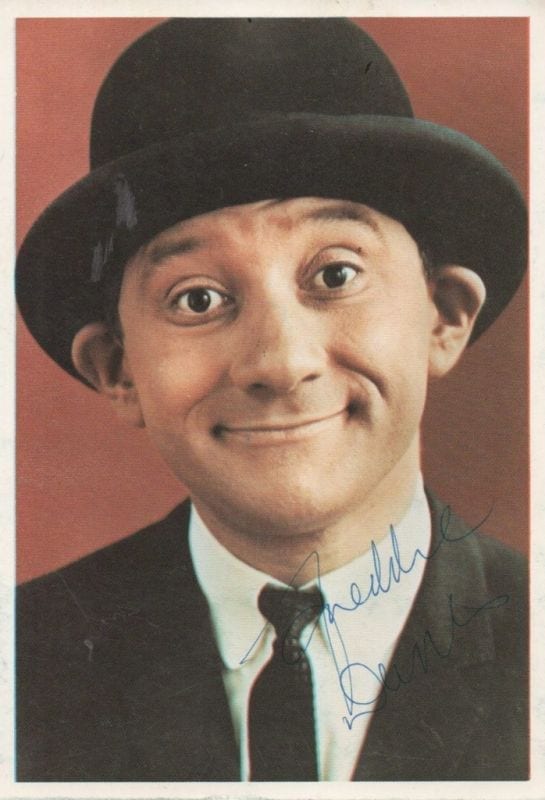
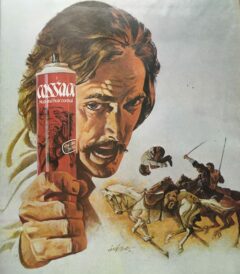
And who’d have thought that Miranda Hart falling over every five minutes would be regarded as the ultimate in side-splitting hilarity?
Remember the “Lucky Old Arbroath” Hamlet cigar TV advertisment? Apparently, the actor was the same Freddie Davies as described in this feature.
I’d completely forgotten that ad but, yes, I do remember that now. He also appeared in Peter Chelsom’s quite strange but interesting film Funny Bones. Worth a watch if it comes up again. Cheers.